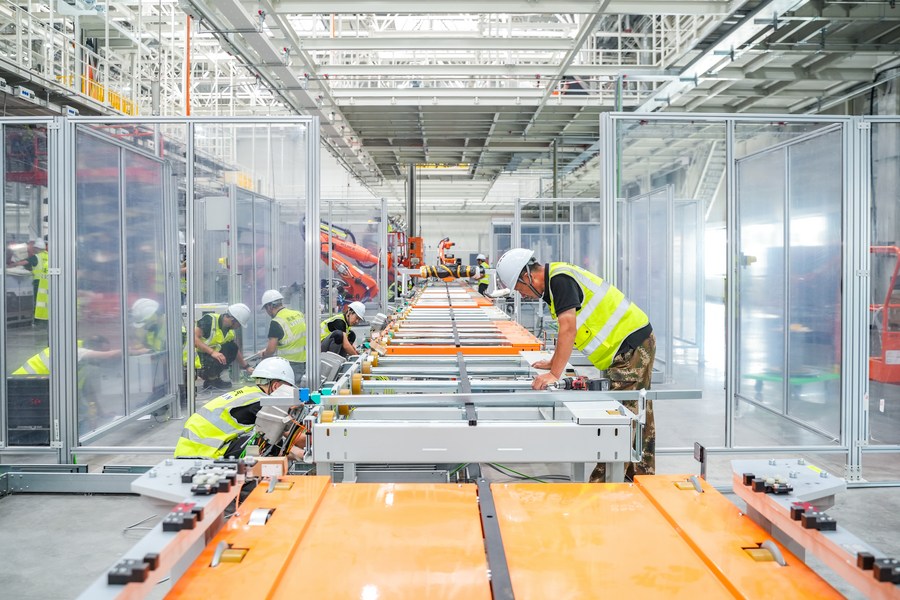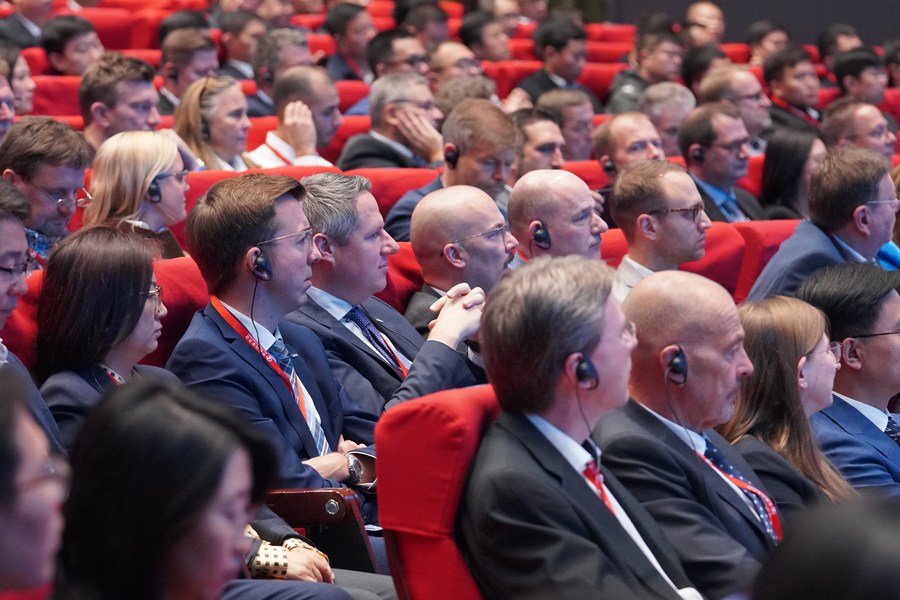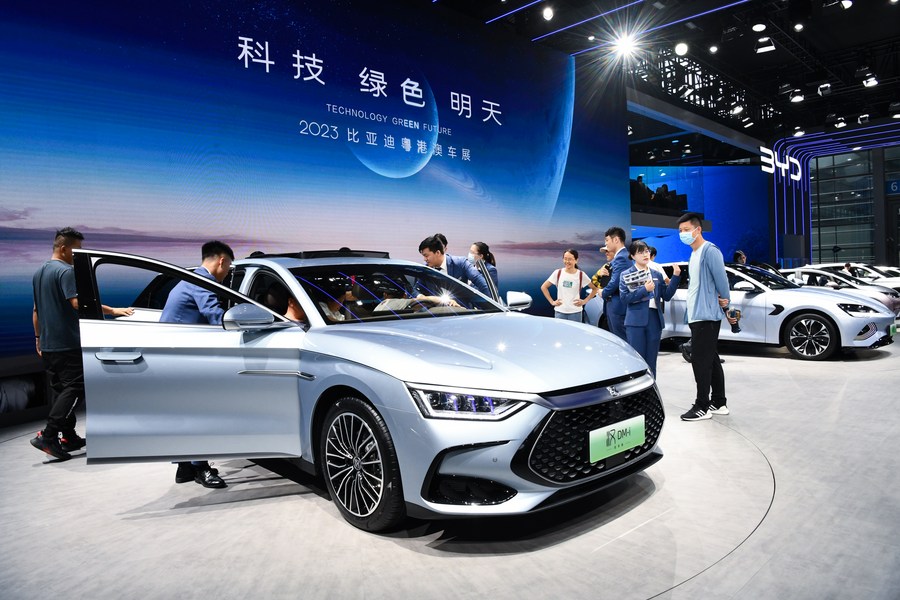* German auto giant Audi and Chinese automaker FAW’s new energy vehicle (NEV) joint project is making remarkable progress as they strive to establish their first pure electric vehicle production facility in the country.
* Despite the EU’s recent anti-subsidy probe into Chinese electric vehicles, German companies remain committed to China’s automotive sector, with German automakers increasing their investments in China to expand their presence.
* German car manufacturers are tapping into China’s technological advancements and its growing importance in the global automotive landscape.
In China’s automobile hub of Changchun, German auto giant Audi and Chinese automaker FAW’s new energy vehicle (NEV) joint project is making remarkable progress as they strive to establish their first pure electric vehicle production facility in the country.
With a total investment exceeding 35 billion yuan (4.87 billion U.S. dollars), this state-of-the-art factory is set to become one of Audi’s most advanced manufacturing sites globally, focusing on cutting-edge technologies and sustainability, according to Audi FAW NEV Co., Ltd.
“We’ve completed the main structural work, and our plan is to begin pre-mass production by year-end, followed by the production of three pure electric models by the end of the next year, with an annual production capacity of over 150,000 vehicles,” said Wang Kaiyu, with Audi FAW NEV Co., Ltd.

Constructors work at a construction site of the Audi-FAW new energy vehicle (NEV) project in Changchun, northeast China’s Jilin Province, June 26, 2023. (Xinhua)
Despite the EU’s recent anti-subsidy probe into Chinese electric vehicles, German companies remain committed to China’s automotive sector, with German automakers increasing their investments in China to expand their presence.
The confidence in the Chinese market was also evident at the recent 2023 China-Germany Automotive Conference held in Changchun, where industry insiders from both sides emphasized collaboration, mutual learning, and market growth in new energy, intelligent connectivity, and other innovative sectors.
Helmut Stettner, CEO of Audi FAW NEV Co., Ltd., shared the company strategy of “In China, for China,” at the conference, which emphasizes developing and manufacturing products locally and expanding their business in China.

Guests attend the 2023 China-Germany Automotive Conference in Changchun, northeast China’s Jilin Province, Oct. 18, 2023. (Xinhua/Si Xiaoshuai)
China is the world’s largest producer and consumer of automobiles. Data from the China Association of Automobile Manufacturers showed that from January to September, China’s NEV production and sales reached 6.31 million and 6.28 million units, respectively, up 33.7 percent and 37.5 percent, respectively, from the same period last year.
Notably, the market share of NEVs in China reached 29.8 percent, presenting great market potential.
Apart from Audi, other German traditional automobile giants are also dedicated to tapping into China’s technological advancements and its growing importance in the global automotive landscape.
BMW is constructing a new battery project in the northeastern Chinese city of Shenyang, showing its commitment to electrification. Company data showed that, in the first nine months this year, BMW’s pure electric vehicle sales in China surged by 232 percent from the same period last year.
Mercedes-Benz also signed a cooperation memorandum on Oct. 17 in Shanghai to deepen collaboration in autonomous driving and intelligent connected vehicles.

A concept car of Mercedes-Benz is displayed at the 20th Shanghai International Automobile Industry Exhibition in Shanghai, east China, April 18, 2023. (Xinhua/Xin Mengchen)
Furthermore, the collaborative spirit extends to smaller German enterprises looking to work with market leaders in the Chinese NEV sector.
Christian Conrad, Chief Business Development Manager of Fraunhofer Institute for Nondestructive Testing, expressed his goal of connecting with leading NEV companies, like BYD, for potential research and industrial projects.
Conrad said there is still much to learn from China, such as marketing, battery materials, and customized car features, and that both sides should work together to expand the market and provide consumers with better products that meet their needs.

Visitors learn about new energy vehicles of Chinese carmaker BYD during the 27th Guangdong-Hong Kong-Macao Greater Bay Area International Auto Show at the Shenzhen Convention and Exhibition Center in Shenzhen, south China’s Guangdong Province, June 16, 2023. (Xinhua/Liang Xu)
Collaboration between China and Europe in the automotive sector continues to gain momentum.
In 2022, European investment in China reached 12.1 billion U.S. dollars, up 70 percent year-on-year, with the automotive sector remaining a major hotspot.
During the same period, China’s investment in Europe reached 11.1 billion U.S. dollars, marking a 21 percent year-on-year increase, with the additional investments focused on new energy, automobiles, and machinery.
“As the global automotive industry accelerates its transformation, China-German cooperation will further extend and expand, achieving synergy and mutual benefit in technology, market, talent, management, supply chain, and innovation chain,” said Chong Quan, head of the China Society for World Trade Organization Studies.
Shayne Heffernan









